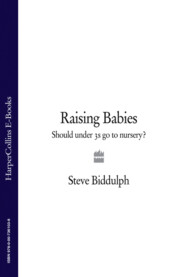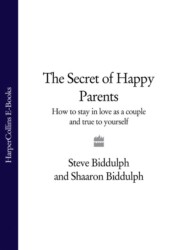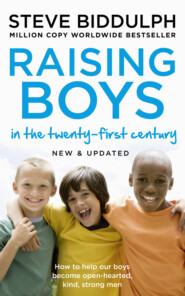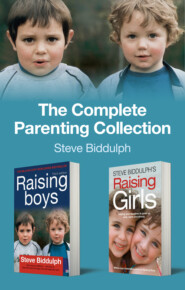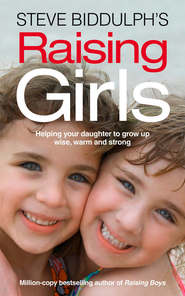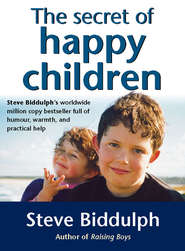По всем вопросам обращайтесь на: info@litportal.ru
(©) 2003-2024.
✖
10 Things Girls Need Most: To grow up strong and free
Автор
Год написания книги
2018
Настройки чтения
Размер шрифта
Высота строк
Поля
THE QUEST OF GIRLHOOD
There is a beautiful and accurate way of looking at girlhood. It is a ‘quest’ – a journey with a purpose, a path along which she gathers the ingredients of her womanhood. We are her main guides, especially early on, and always there in the background later, just helping it go more easily. In raising a child we always have this dual awareness. We enjoy each day for its own sake. But we also have in our mind the big picture – what is important for her to experience and learn in preparation for the time when we are no longer there to help her.
Knowing the stages is incredibly helpful, because it keeps us to a plan. Our goal is making a wonderful woman. And that’s what the stages do.
So – we start with a simple question.
What age is your daughter right now?
0–2 2–5 5–10 10–14 14–18
Now the important question – since she may have passed through a number of stages, see if you can rate how well they were achieved, in your opinion, using the following scoresheet.
Do this off the cuff, even if you don’t fully understand what the stages mean yet. We’ll return to them in detail later, but this is a starting point.
I’ve inverted the stages so you can see them as a kind of building, with foundations at the bottom. (If your daughter is under two, you can only rank the bottom line. If she is aged from two to five you can rate the second item as well. If she is aged from five to ten the third, ten to fourteen the fourth. and fourteen and over, the fifth. So you have rated all the way up to the age she is.)
Give each life-stage from one to five stars, just as if you were rating a hotel.
Can you see where the gaps are?
Where might she need your help to repair missing or weak stages in her growing up? The neuroplasticity of the human brain means it’s usually possible to put in experiences that were missed the first time around. (The chapters to come will help you to do this.)
Complete this sentence
‘I think we need to work to improve stage
’
HOW ABOUT YOU?
And now the really profound question – and perhaps the most useful. If you are her mum – how well did those stages go in your own growing up years? If you are her dad – same question.
Slow right down now to think about this. It’s going to be a bit sobering for some readers, because our own childhoods might have been disastrous. That’s why we are so motivated to do better for our girls than was done for us.
If you can identify the stages you had trouble with, or times when you did not have your needs met very well, then you will be much more aware and able to get it right with your own girl. This might be the most important thing you do in the whole book.
Mum’s Girlhood Profile
In your own girlhood, how well were these needs met? Give each a rating from one to five stars. Start at the bottom (no. 1) and work your way up.
This can be important when your daughter is going through a stage that was not easy or well cared for during your own growing up. That means getting some extra support to make sure you can help her in the very best way you can. Don’t worry, there is a lot more in this book about how to do that. You are awake now to the challenge and it’s certainly going to go better because of that.
Dad’s Boyhood Profile
(Or Co-parent if you are a same-sex couple)
While boyhood has a different set of stages and ages to girls, we have kept things simple by just using the same ones. It will still work as a guide. In your childhood, how well were these needs met? Award up to five stars for each point
ADVANCED EXERCISE
If you are a couple, you might want to try this. Add the scores of your two profiles together. So each row will have a score out of ten.
Combined Mum and Dad (or Partner) Profile
If you look at the profile for both of you added together, you might find that you fill in each other’s gaps in a very helpful way. Or not! This is the psychology of your family when combining your strengths and weaknesses. It tells you what you have to work on developing. As long as you have a minimum of six stars – between you – on each stage, then you can probably relax about those stages. If one or more stages look a bit wobbly, then the book, as you go through it, will help you with these.
Our family needs to focus most on the ______________________________ stage.
Be of good cheer! It’s easier to overcome any gaps if you know what they are. In family life, it’s the things you don’t know about yourselves – the blind spots we all have – that cause the biggest problems. Once you see clearly, you have much more power to make changes. Once you know, you are set to give your daughter what she needs (even if you didn’t get it yourself).
“I was horrified to realize, doing these questions, that my daughter’s childhood was a repeat of my own. Too many moves. Men in her life being unreliable. Being lonely and on the outside at school. It gave me a massive wake-up call to think: ‘I have to make it different for her.’ All we do is fight all the time. I am determined to make our lives more positive, and calm, and steady. I want her life to be better than mine.”
Lorna, 42
“It all came down to stress. We were financially secure but just too hurried and hassled. In my childhood we had been poor immigrants, and my parents very busy, but in the here and now, we didn’t need to be so wound up. The questions made me see that we had work to do to make life more happy and focused on everyday moments. It didn’t have to be the struggle that my childhood was.”
Damien, 31
Now, we know exactly where your daughter is. It’s time to begin the main part of the book. The Ten Things Girls Need Most …
(#ulink_30ad8998-8975-5fe7-9da4-077ec93fedc0)
Chapter One (#ulink_9edc05d6-d705-509a-a729-4aa9b2ccbe60)
A Secure and Loving Start (#ulink_9edc05d6-d705-509a-a729-4aa9b2ccbe60)
“It all begins in your arms. Her knowing that she is cherished and safe. But to give her that security, we have to be in the right place ourselves.”
This chapter is about how to get the most important thing about childhood right. That is, to help your daughter have a deep-down feeling of security and worth. Everyone alive needs to have this, because it helps us to feel at ease in the world, able to be close to others, and able to relax. Babyhood is the best time to get this feeling, but it’s never too late to start.
For a little child, mum and dad are her whole world. Their emotions are her emotions. A baby doesn’t know (or care) if she lives in a tin shed or a palace, as long as those caring for her are kind and peaceful. If we can manage that, at least some of the time, then long after we are gone she will carry this memory inside her. When times are hard, it will be there for her to draw on. Of course, this can be hard for us to hear, because our adult world is a rushed and stressful place. We might have spent our lives racing to get ahead. But with a baby or toddler, the priorities are changed. The most valuable thing we can do is – very little. We need to calm things down.
Imagine for a moment what it would feel like to be a small baby, with someone’s arms holding you gently and a loving face looking down at you. See if you can feel in your body what that would be like, and enjoy it for a moment. Imagine knowing that you are at the very centre of this person’s love and concern. Knowing that they will capably and caringly look after you. That you have no need to do anything, prove anything or fear anything. That they delight in you, and enjoy you, and love you and will give you all that you need. That you are totally safe. Just imagine all these things, and notice how that feels in your body. Where do you feel it? What is it like?
THIS IS THE FEELING WE WANT OUR CHILDREN TO START OFF WITH
This kind of experience for your daughter can only come from having you, her parent/s – and hopefully a handful of other people as well – who love her and actively show that. This is best and most easily done when she is a baby, but it carries all the way through. And if you’re reading this because you have a ten-year-old or a seventeen-year-old then it’s still fine – you can still fix this. You’ll find out how, as this book goes on.
HOW TO MAKE SURE SHE’S SECURE
‘Am I loved and secure?’ That question is at the heart of every whimper she makes, every gaze she sends out in search of your smile, every excursion she makes crawling or toddling across the grass or the floor before scurrying back to your arms.
It’s a huge question. It depends on a mother (or father or other carer) being safe themselves. Supported. Not stressed by outside factors. It depends on those around the mother – a partner, grandparents, neighbours and friends – being caring and warm to her, so she can do the same for her baby. It depends on her having memories of warmth and security in her own life, if not in babyhood then at some later time.
Babies need to be loved for a very practical reason, because that means they will be attended to, fed, soothed, kept clean and safe, talked to and sung to and played with. That takes time – huge amounts of it. And it takes an adult sufficiently mature in themselves to put this little creature’s needs ahead of their own. Love isn’t just a gooey feeling, it’s a blazing fire, a massive power source to carry you through all these things. That’s why it has to be kindled well.
Here is a rating for your situation during your daughter’s early years – give each point a rating out of five stars (5 is VERY, 1 is HARDLY AT ALL). Go slowly with this, and really think it over. When your daughter was under two:






